Mystery Roundup: The Best of the Year So Far
A round-up of the best mysteries of 2025 to date, with titles from Laurent Binet, Sara Sligar, and more.
This newsletter is free to the public, and appears infrequently due to my chronic illnesses. If you would like to support me, you can subscribe to my podcast's Patreon here. Although I'm on leave, this still helps. Otherwise, feel free to send me a couple bucks through Ko-fi.
As you all surely know by now, I read a lot—a lot—of books. It wouldn’t be possible to make it through as many literary and serious nonfiction titles as I do without some titles that are pure pleasure, and for me, that pleasure comes in the form of mysteries. That’s not to say that the books below aren’t clever or surprisingly deep themselves: I am, let’s be real, a snob, and I gravitate toward mysteries that have something on their mind, and/or pull of something stylistically interesting. But these books also always succeed for me because they are fun to read.
It is, of course, completely impossible to keep up with “all the books” as a single reader, even though I do read a great deal, and I’m definitely not trying to read “all” the mysteries, but I do read quite a lot and I have been especially dazzled by these titles in different ways so far this year. I hope you check some of them out, maybe for the beach in this last month of the summer, or later in the fall when things get spooky.
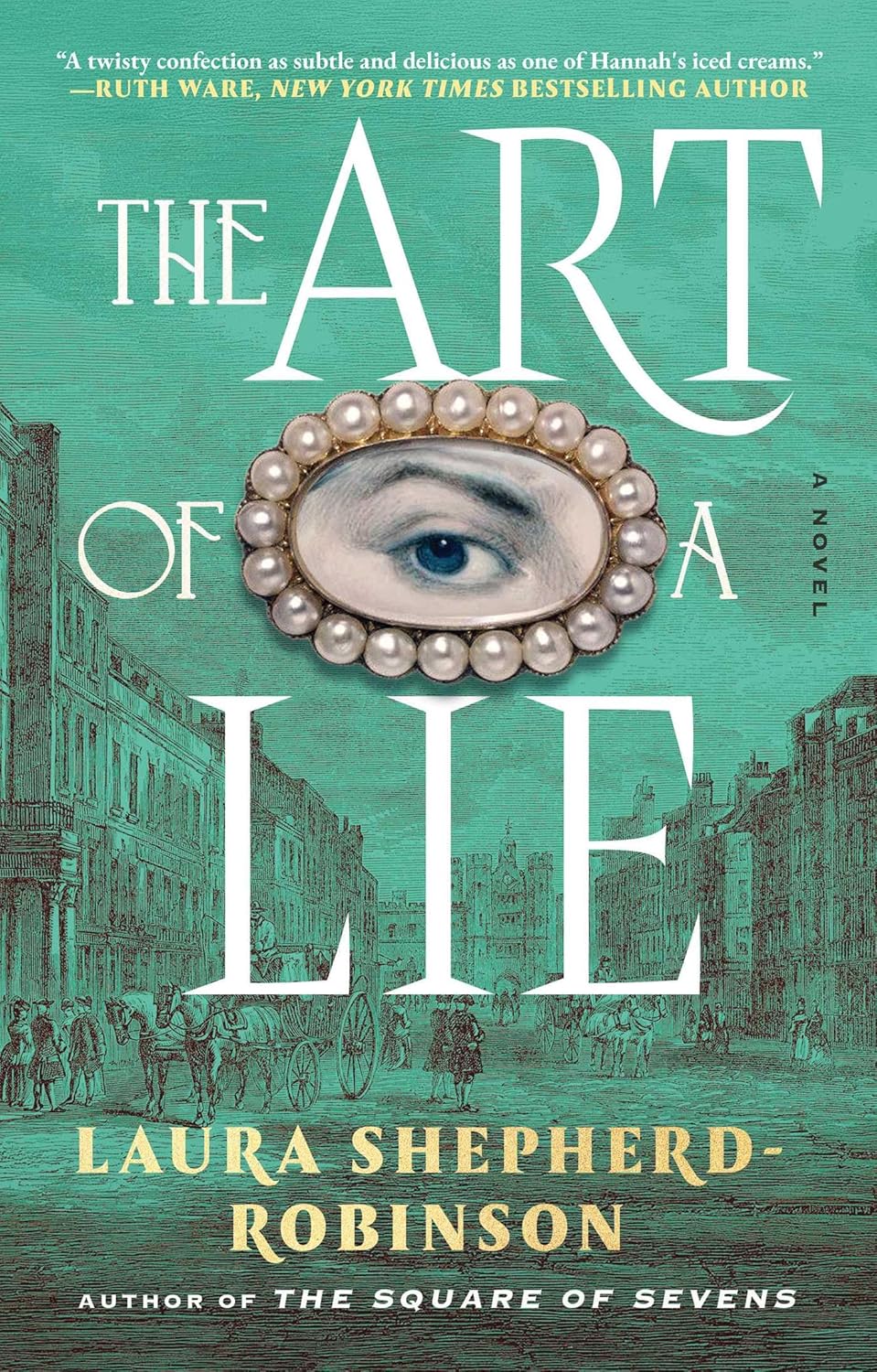
The Art of a Lie, Laura Shepherd-Robinson (Atria, 8/5)
This delicious novel, set in London in 1749, rests on one deception after another. The protagonist, the widow Hannah Cole, has been left to run the confectionery she inherited from her family alone in the wake of her husband’s violent death—so long as she can keep the business afloat, that is. Yet we learn near the beginning of the novel that Hannah herself murdered her adulterous husband, not thieves or his criminal associates, as the city’s newly-formed investigatory force suspects. Soon, the author Henry Fielding, who also heads up this force (as he did in real life) is asking too many questions, making Hannah worry that her seemingly perfect crime wasn’t so perfect after all.
At the same time, she’s being courted by a handsome gentleman by the name of William Devereux, whom she finds herself drawn to in spite of herself—in part because Devereux introduces her to ice cream, which makes her store a local sensation. Unsurprisingly, Devereux also isn’t quite what he appears to be. I’m not an expert on novels of this period, but I know enough to have appreciated the way that Shepherd-Robinson plays with tropes from those novels as well as real 18th century history. Unlike the Victorian age, this century in London was raucous, lewd, and not even slightly “proper.” Shepherd-Robinson brings this energy to her novel while also deploying a 21st century command of narrative and suspense. A glorious read (that will make you want to go out and get a scoop of ice cream).
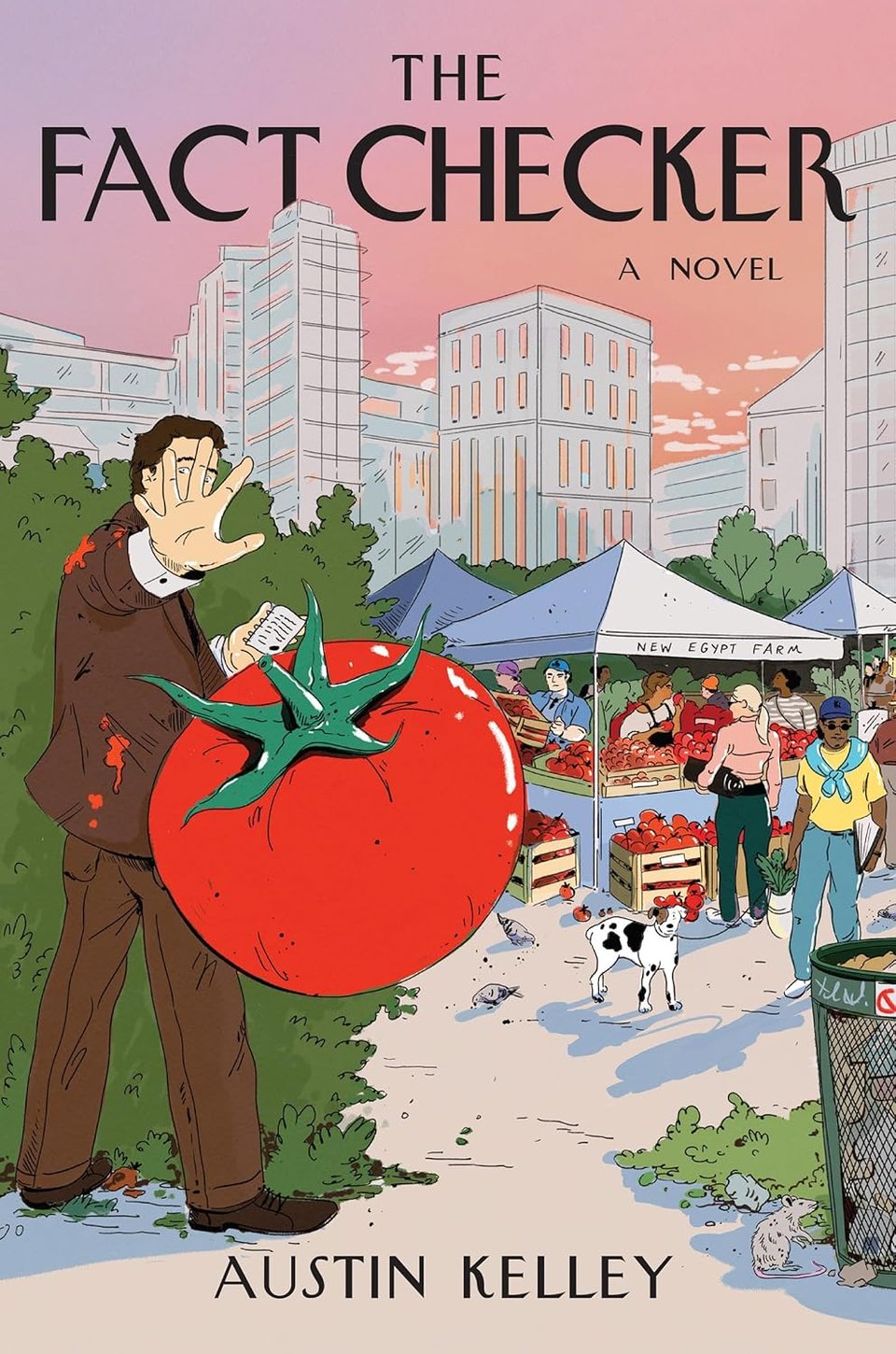
The Fact Checker, Austin Kelley (Atlantic Crime)
I’m not sure how to describe this absurd novel, which is certainly a mystery but not exactly one with high stakes. The Fact Checker is not a thriller replete with murders; its milieu is a magazine (obviously standing in for The New Yorker, where Kelley once worked) and the scandals associated with the Union Square greenmarket. After becoming infatuated with Sylvia, a farm employee who comes to the market, the Fact Checker (so described by the book’s copy) is alarmed when she disappeared. Tasked with fact-checking a bland piece about Ramapo tomatoes, he sets out to track Sylvia down, convinced that the farm in question is the source of a grander conspiracy.
Set in 2004, Kelley’s funny and strange book is concerned, above all, with the mostly lost art of fact checking: what is a fact and how can it be determined? The war in Iraq is the much more serious underpinning to the absurd greenmarket story. The idea of a post-truth world, in which we all now live, in many ways began with the absurd claim that Iraq had WMDs—a claim journalism didn’t care to contradict at the time, or did but to minimal effect. While the Fact Checker obsesses over tomatoes, he neglects a story about John Kerry’s supposed swift boat scandal, another story that was made up, that needs to be checked to be debunked (but whose debunking, in real life, didn’t ultimately matter). Kelley’s New York is semi-surreal, a world through which his protagonist drifts in a state of perpetual paranoia; though the stakes of his farm story are low, the stakes of journalism as an enterprise are not—if only, Kelley seems to suggest, we could all work out easily which stories matter, and how to get people to believe us when we tell them.
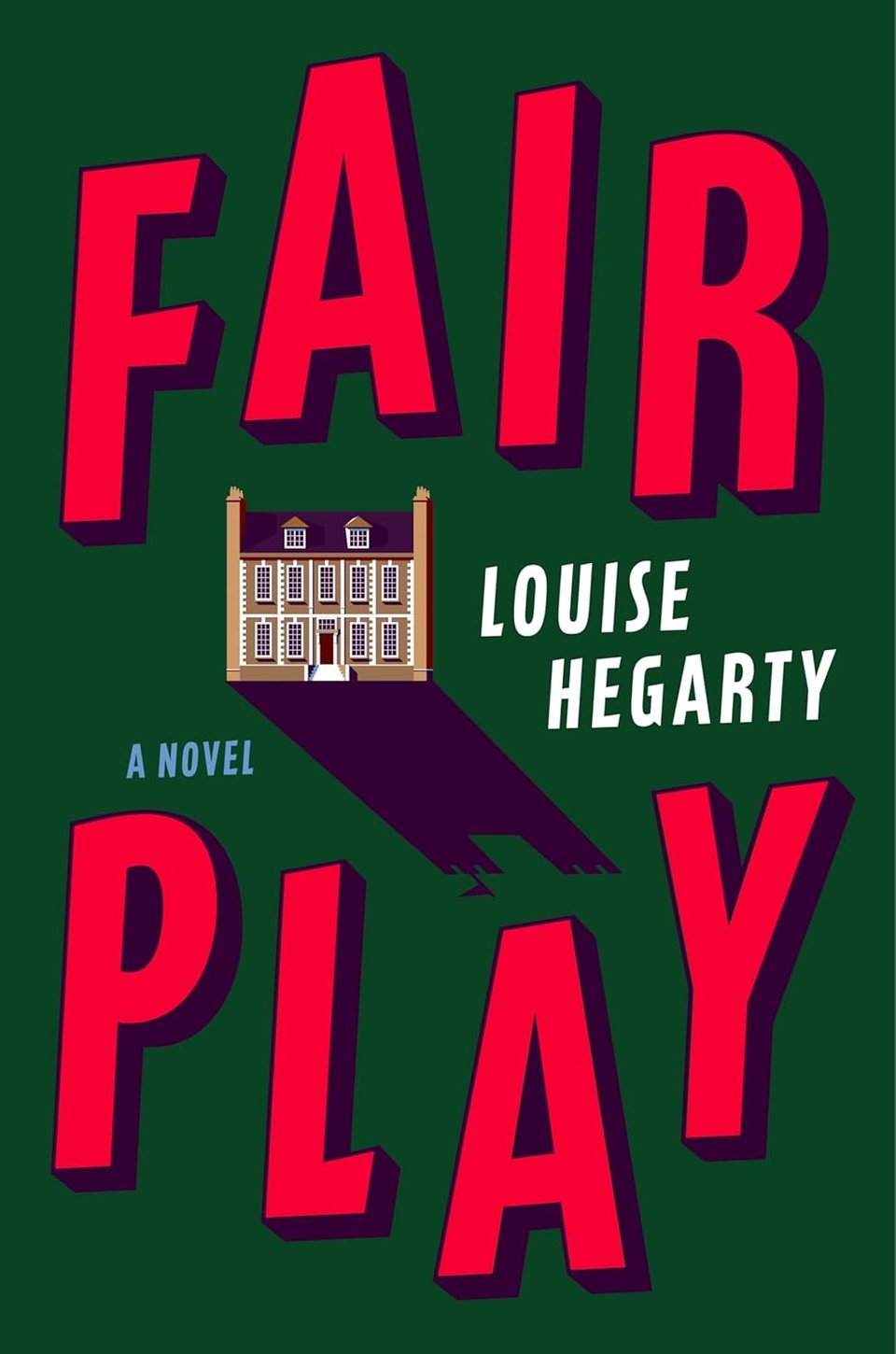
Fair Play, Louise Hegarty (Harper)
This debut from Louise Hegarty is an enjoyably odd mash-up of genres and styles: part of the book, set in everyday, contemporary Ireland, involves Abigail mourning her brother Benjamin, who dies on a birthday weekend to a country house. Abigail arranges a murder mystery party for him every year; this year, though, he doesn’t wake up, and she finds herself adrift and grieving in the wake of his death. The other half of the novel spins off from this premise, re-conceiving the weekend trip as fodder for a Golden Age mystery, to be solved by renowned private detective Auguste Bell. This part of the book is intentionally metatextual: Hegarty includes Golden Age author S.S. Van Dine’s list of “Twenty Rules for Writing Detective Stories” (e.g., “Servants … must not be chosen by the author as the culprit”1) and references them throughout this portion of the novel, and Bell refers to events happening in future chapters, as well as using the form of the detective novel to assist his investigating: “It reminded him of a previous case of his, The Triple Petunia Murder, but plots tended not to repeat themselves, in his experience.”
I did not find that the two halves of the novel, realistic grief and mystery metanarrative, entirely fit together; while it’s clear that Hegarty is trying to use the detective novel form to comment on the absurdity of death, it doesn’t entirely work. I found the pastiche elements utterly delightful, and it could sometimes be jarring to be thrown back into the real, sad world of Abigail’s loss. But I also cannot help appreciating Hegarty’s boldness in trying to do something new with a form that is almost impossible to make feel fresh. If you, like me, love mysteries, and especially Golden Age mysteries, I think this book is very much worth reading even if it does not quite (to my mind) achieve all its aims. I’m certainly very curious to see what Hegarty writes next.
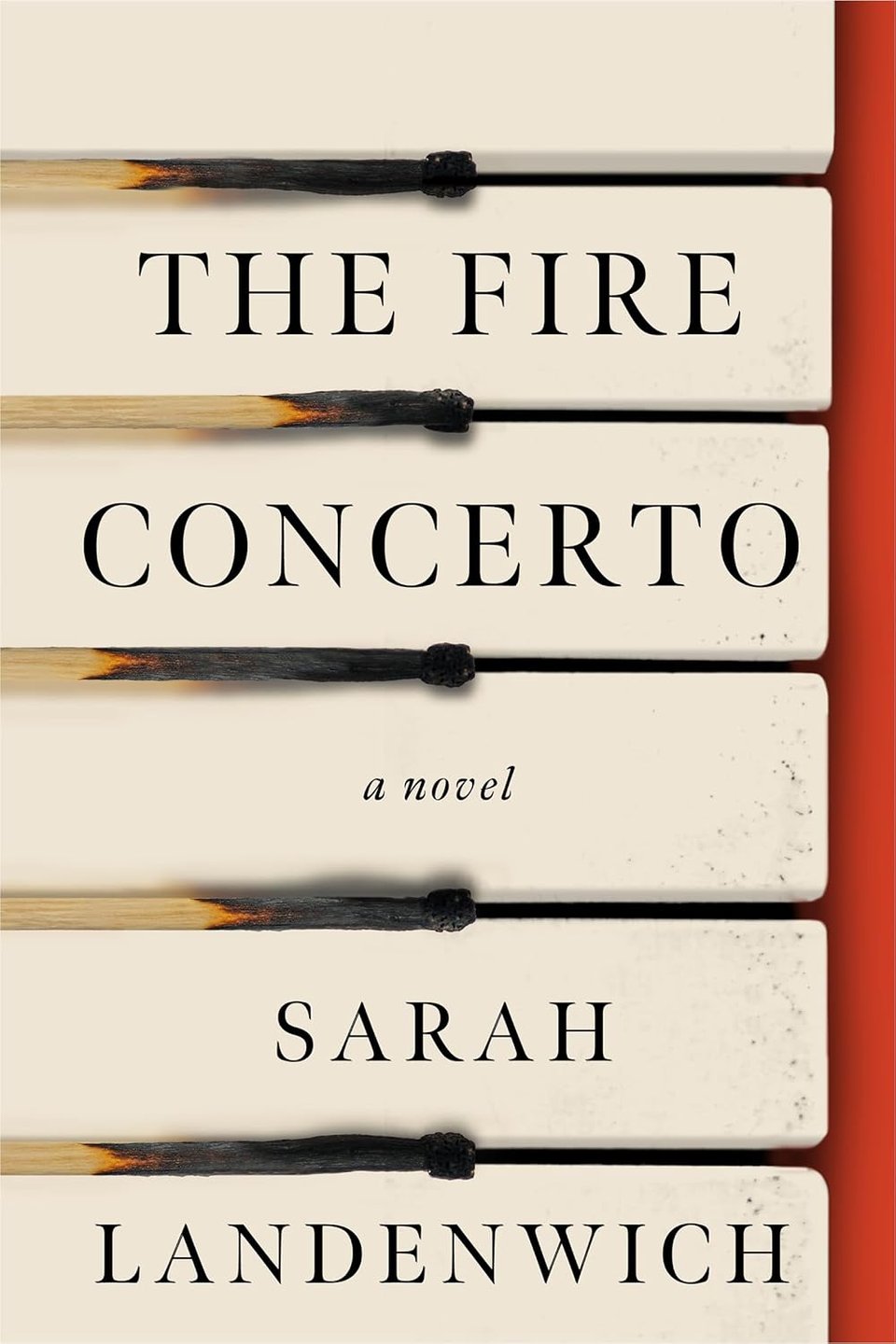
The Fire Concerto, Sarah Landenwich (Union Square)
I was fully swept up into this marvelous debut, which makes great use of the process of research to ground its mystery. Clara Bishop, a former child piano prodigy, has been living as far away from her old life as she can, but she’s dragged back into that world when her former teacher, a brutal and uncompromising woman whom she does not remember fondly, dies and leaves her a mysterious bequest: an antique metronome. Soon, Clara begins to suspect that the metronome is the metronome that female pianist Constantia Pleyel used to kill the great nineteenth century composer Aleksander Starza—who also happens to be Clara’s ancestor.
Landenwich does a brilliant job balancing and weaving together several strands that make up this novel: Clara’s complex relationship to music, which changed irrevocably after an accident that damaged one of her hands, and was already fraught given her domineering teacher and her intimidating bloodline; the difficulty of figuring out why exactly her teacher left her this object after years of estrangement; the mystery of what exactly happened to Starza (and whether this metronome has anything to do with it); and the frightening possibility that others are following Clara and out to steal the metronome from her. There is real suspense in this novel, but the biggest surprises come from Clara’s determination to find out what happened to Starza, and to unearth more about Pleyel. As someone who has done historical research in archives (though certainly never made the kind of world-changing discovery that Clara hopes to), Landenwich captures the thrill of digging through old documents and consulting with other scholars over an exciting problem. That might sound dull to non-academics (or non-journalists), but I promise that this book fuses history and the present seamlessly, in surprising and gratifying ways.
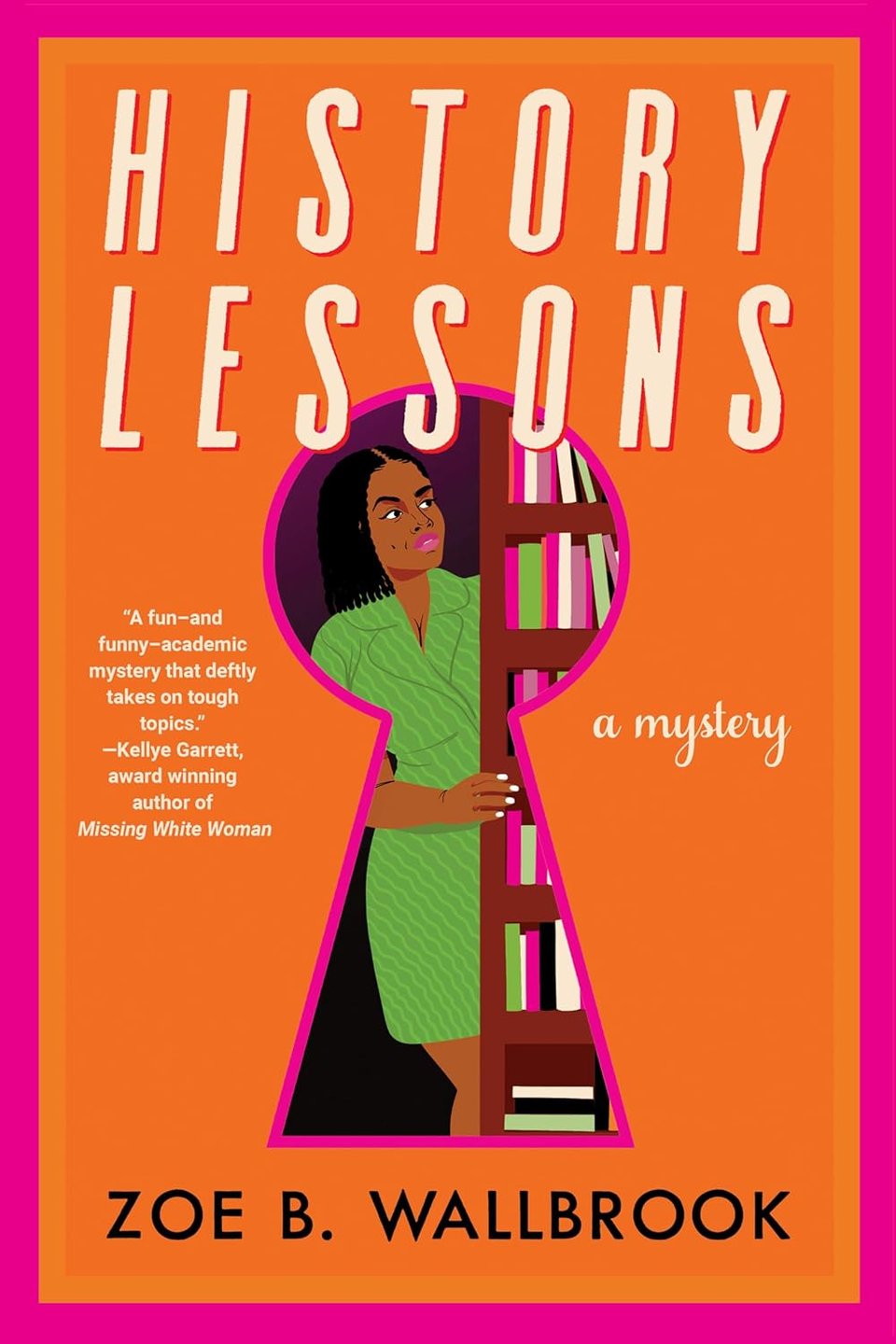
History Lessons, Zoe B. Wallbrook (Soho Crime)
This charming debut, written by a professor, centers around a new tenure-track professor at the prestigious Harrison University. Daphne is Black, and her work focuses on the colonial entanglements of the French empire, but she soon finds herself caught up in the investigation into the death of a famous (white) colleague, rather than buried in her research (or her teaching). As the case progresses, Daphne realizes that the deceased, whom she never liked much anyway, was not the golden boy the university made him out to be, and that his death isn’t the end of a violent conspiracy—one that has her in its sights.
History Lessons is not a perfect novel: in this debut, Wallbrook has tried to bite off a bit more than she can chew (there are a lot of plot lines), and Daphne’s romance with a used bookstore owner who also moonlights as a police detective is not compelling. (I also found the idea of a civilian, even an ex-cop civilian, being allowed to investigate a murder highly dubious.) But Wallbrook’s writing also has a lot to recommend it. Her own experiences have obviously informed her pitch-perfect satire of academic life, both regarding trivial matters (students who begin papers with a laborious dictionary definition of a word) and the much more serious effects of racism and sexism in the workplace. Daphne herself is an irresistible protagonist, someone who loves her job and her research but who can’t help but see the cracks in academia’s facade. Academics and failed academics simply must pick this book up, and I’m sure plenty of other readers will enjoy it, too.
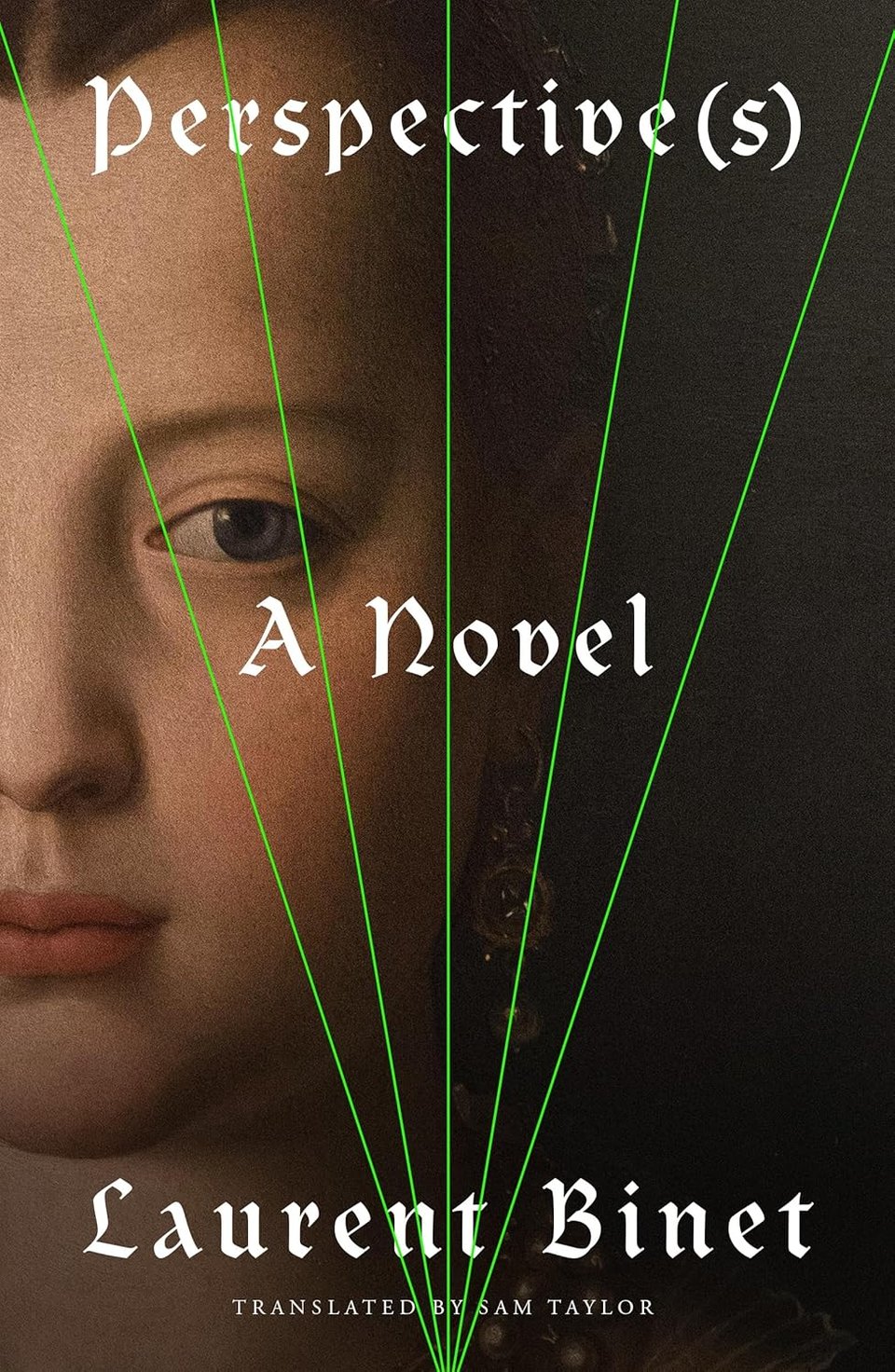
Perspective(s), Laurent Binet (FSG)
This delightful novel is perhaps the most clever mystery I have read this year, or in many years previous. Set in Mannerist-era Florence, Binet (whose previous books have also played with history and genre) uses real-life historical and art historical figures as characters, including Giorgio Vasari, Michelangelo, Cosimo de’ Medici, Agnolo Bronzino, and more. The mystery, framed as a series of found letters, kicks off when an old painter is found murdered at the site of a fresco project he has been working on; adding to the drama is the fact that the painter supposedly painted a revealing portrait of Venus with the face of Cosimo de’ Medici’s daughter. (That daughter happens to be having an affair with a page.) Appropriately, Vasari, the chronicler of Renaissance art, is assigned the task of investigating the crime, sending around pestering letters to all and sundry, Michelangelo included.
It’s hard to describe how much pleasure I got out of this book, as someone very familiar with the art and artists of this period, and also fairly familiar with the noble figures involved. Though I think you could enjoy this without such a high level of knowledge going in, Binet is obviously writing this for art history fanatics—the joke of Vasari, who was not talented enough to be a very successful artist himself and instead turned to biography, running around at Cosimo’s bidding to investigate this crime, is just too good. Bronzino and various other characters reference their liaisons with other men, some workers invoke Karl Marx avant la lettre, and there are some vicious nuns involved too. It all culminates in a series of action movie set pieces involving the architectural (and artistic) marvels of Florence. I was in heaven. If you share my particular obsessions, you will fall for this book hard, too.
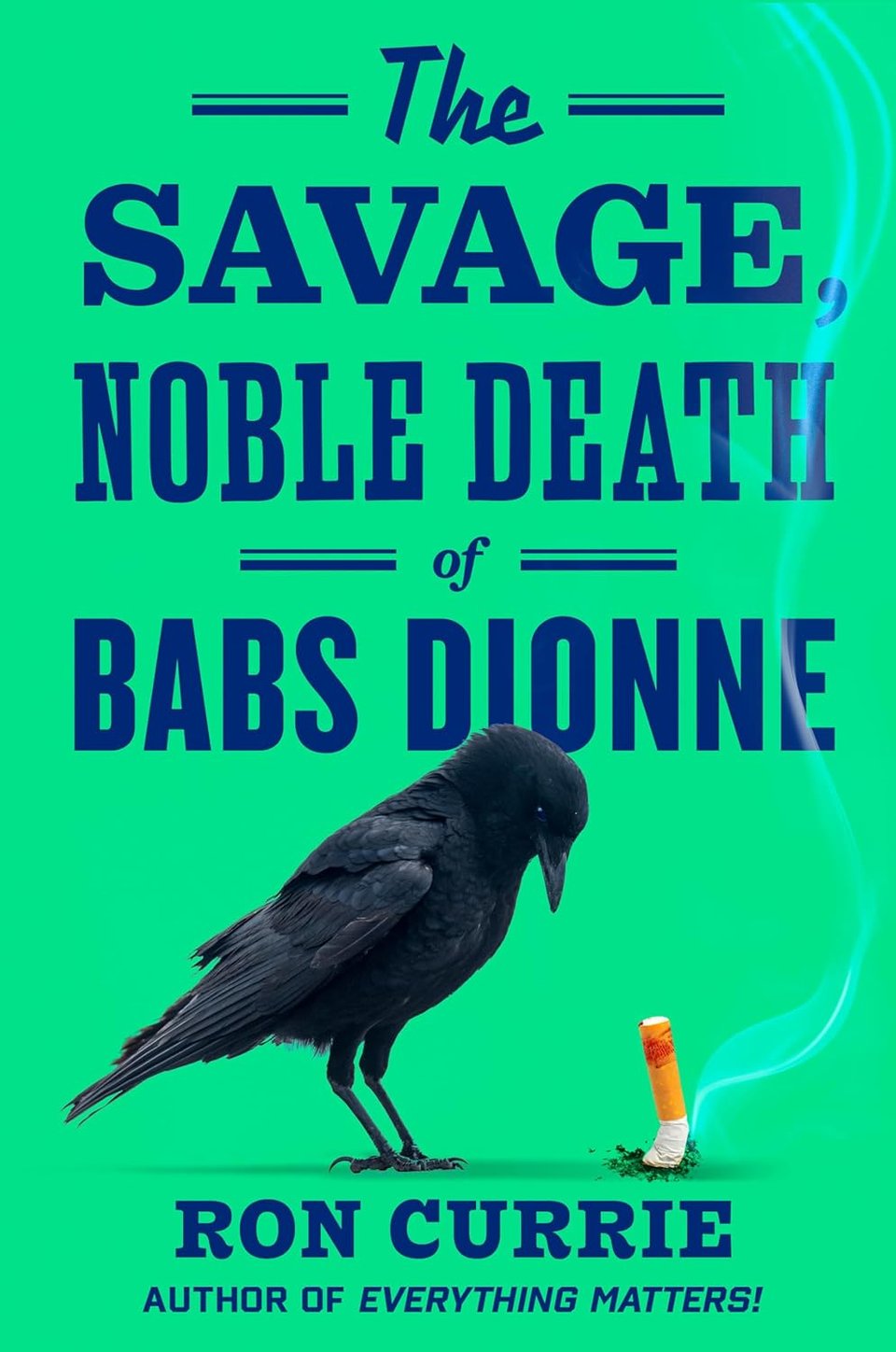
The Savage, Noble Death of Babs Dionne, Ron Currie (Putnam)
Set in Waterville, Maine, in a tight community of former French-Canadians and their descendants, this novel is at once a family drama, an organized crime thriller, and a story of the small depressed towns in America taken over by the drug trade (and, by extension, drug use). I hadn’t encountered Currie’s work before reading this novel, and it blew me away. We’re introduced to Babs Dionne, the title character, when she is a teenager, discriminated against by the local police and then raped by a young cop. As an adult, decades later, she has become the fearsome boss of the town’s drug traffic, while also terrorizing her grown children.
Currie writes brilliantly about addiction, and about local networks, customs, and family bonds that prevent people from moving forward in life. Babs’ daughter Lori, a veteran and an addict, is the most compelling secondary character, and we can see that she is obviously being destroyed by being trapped in this small town with her mother (whose own painful history she hasn’t shared with her children). Currie masterfully arranges his narrative to bring the different characters’ motivations and loyalties into conflict, with Babs finally having to reckon with how her actions have affected her family. A brutal, cathartic novel.
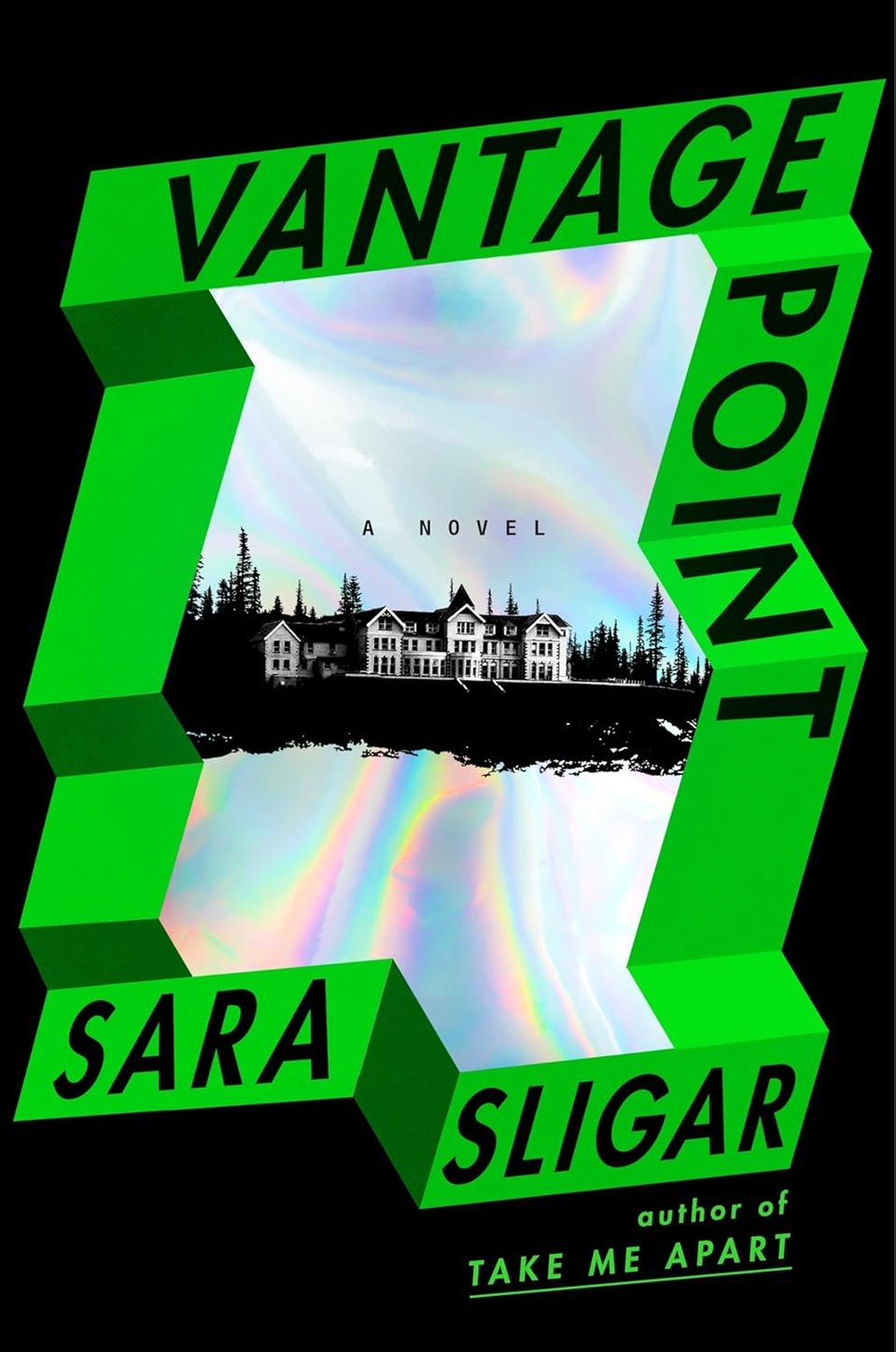
Vantage Point, Sara Sligar (MCD)
I almost left this one off as it came out in January and I already reviewed it on Instagram, but if I’m compiling the best mysteries and thrillers I’ve read this year, Vantage Point has to make the list. This incredibly clever book is partly a parable about the dangers of AI and deepfakes, and partly a commentary on the ultra-rich: it follows the Wieland family, a Kennedy-esque dynasty based in Maine, who are supposedly haunted by a curse. Sister Clara, who has struggled with an eating disorder, finds her world turned on end when a sex tape she absolutely does not remember filming leaks online, threatening to scupper the senatorial campaign of her brother Teddy. (Teddy, Sligar makes very clear, has no business whatsoever running for the Senate.)
Teddy doesn’t believe Clara when she tells him that the video is a fake, blaming it on her erratic behavior and previous mental health struggles, and as the book progresses, more and more videos (and other illusions) emerge, causing rifts between the siblings and between Teddy and his wife Jess, who also happens to be Clara’s best friend. Sligar’s use of technology is brilliant—as she’s pointed out, the tech she describes is more advanced than what AI can do today, but not by as much as you’d think—but her eye for the weaknesses and tyrannical behavior of the ultra-wealthy—the men in particular. As the book progresses, Teddy becomes increasingly monstrous, a frightening ghoul who fits right in with the mode of Gothic storytelling to which Sligar is paying homage.
And a few more titles I’ve enjoyed…
The Diary of Lies, Philip Miller (Soho Crime, 8/12), in which investigative journalist Shona Sandison investigates a post-lockdown government conspiracy2; El Dorado Drive, Megan Abbott (Putnam), a suburban gothic tale of middle-aged women falling for a multilevel marketing scheme; Our Secrets Were Safe, Virginia Trench (Crown), in which two college friends are haunted by a crime they thought was long buried; Ruth Run, Elizabeth Kaufman (Penguin Press), a snazzy tech thriller featuring a hacker who’s too smart for her own good and her FBI stalker.
I recently read a Golden Age novel where a servant was the baddie and I was so outraged… play by the rules! ↩
I loved a lot of things about this book, especially its focus on COVID and the fact that it evoked John le Carré’s post-Brexit writing; that said, I wish I had read the two previous books in the series before reading this one. I’ve already gone back and read The Goldenacre which was great, too. So if this appeals to you, go in order. ↩